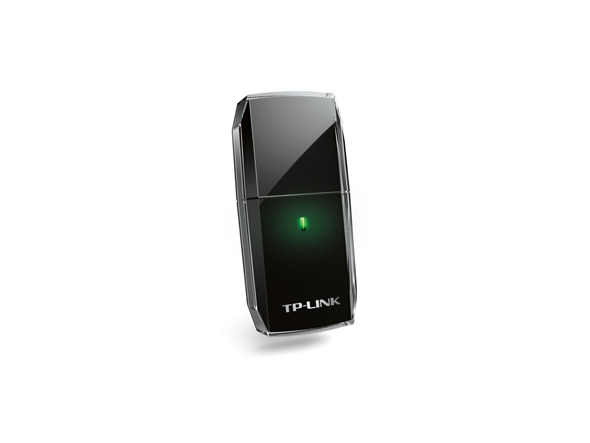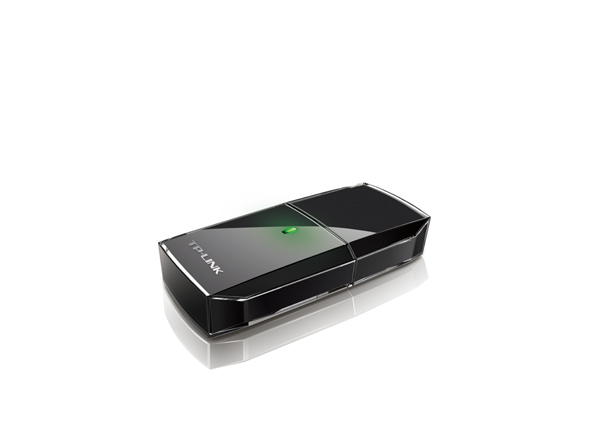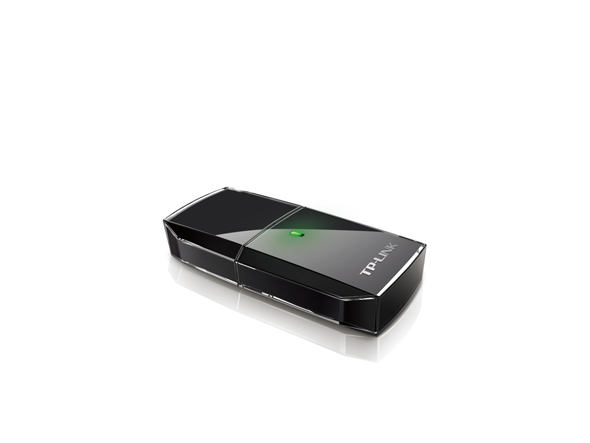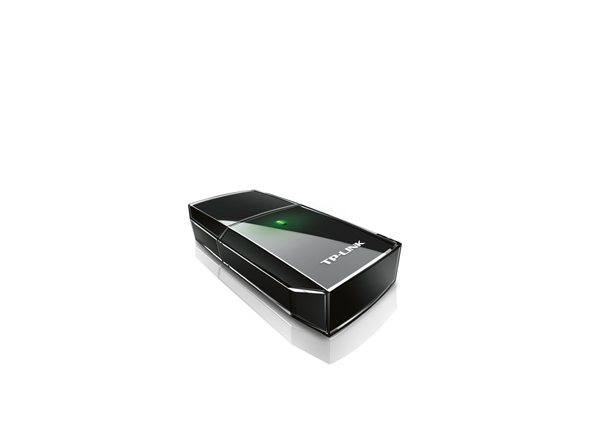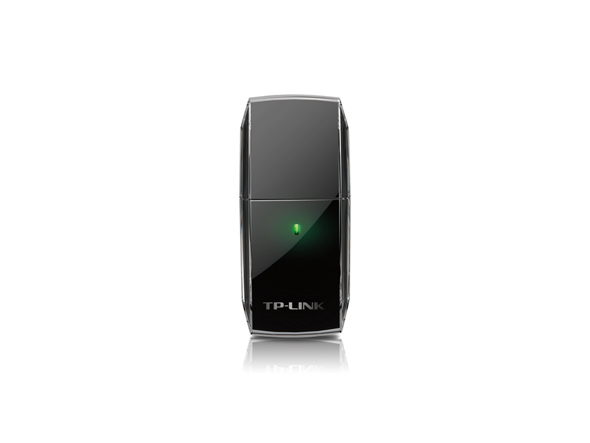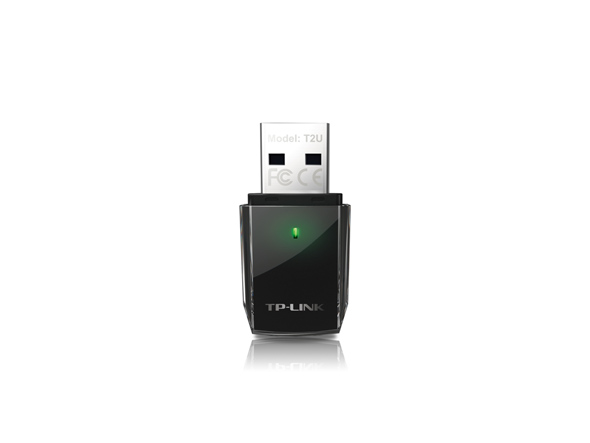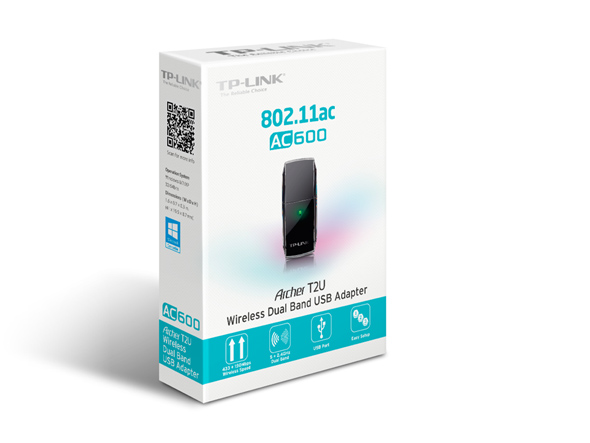Archer T2U
End of LifeAC600 Wireless Dual Band USB Adapter
- 600 (433+150)Mbps wireless speed with 802.11ac*
- A tiny way to get speedy next-generation Wi-Fi connections
- Selectable dual-band connections for lag-free HD video streaming and gaming
- Advanced Security: Supports 64/128 WEP, WPA, PA2/WPA-PSK/WPA2-PSK (TKIP/AES)
- Supports Windows 10/8.1/8/7/XP and Mac OS
802.11AC –
The Next Generation of Wi-Fi
TP-LINK's Archer T2U comes with the next generation Wi-Fi standard - With fast WiFi technology - 802.11ac, with transfer rates 3 times faster than wireless N speeds. It provides an easy way to upgrade even older laptops to next generation Wi-Fi.
AC 600 – Selectable dual-band
speeds 433/150Mbps
The T2U provides 433 Mbps high speeds WiFi over the 5 GHz band, making it ideal for HD video streaming and lag-free online gaming, while its 2.4 GHz 150 Mbps WiFi can be used for normal use such as web surfing with legacy devices.
Miniature Design –
Easy to take on the road
With its compact and sleek design, it’s smaller than most 11ac Wi-Fi USB adapters available and easy to take on the road. Users can connect the mini adapter to any USB port.
Sleek and Stylish –
High standard production process
Doubleshot molding - Our advanced molding technology gives the Archer T2U its crystal clear surface, while our strict polishing treatment produces a smooth and soft surface with a high-quality touch.
Easy to Install
A friendly user interface utility on a CD for simple installation
Soft AP
Easily establish a high speeds Wi-Fi hotspot with just a few clicks
Compatible
Works with 802.11 a/b/g/n /ac devices
| HARDWARE FEATURES | |
|---|---|
| Interface | USB 2.0 |
| LED | Status |
| Dimensions ( W x D x H ) | 1.6×0.7×0.3 in. (41×19.5×8.7mm) |
| Antenna Type | Omni Directional |
| WIRELESS FEATURES | |
|---|---|
| Wireless Standards | IEEE 802.11ac, IEEE 802.11a, IEEE 802.11n, IEEE 802.11g, IEEE 802.11b |
| Frequency | 5 GHz 2.4 GHz |
| Signal Rate | 5GHz 11ac: Up to 433 Mbps(dynamic) 11n: Up to 150 Mbps(dynamic) 11a: Up to 54 Mbps(dynamic) 2.4 GHz 11n: Up to 150 Mbps(dynamic) 11g: Up to 54 Mbps(dynamic) 11b: Up to 11 Mbps(dynamic) |
| Reception Sensitivity | 5GHz: 11a 6 Mbps: -94dBm 11a 54 Mbps: -78dBm 11n HT20 MCS0: -94dBm 11n HT20 MCS7: -77dBm 11n HT40 MCS0: -92dBm 11n HT40 MCS7: -74dBm 11ac VHT80 MCS0: -89dBm 11ac VHT80 MCS9: -64dBm 2.4 GHz: 11b 1 Mbps: -99dBm 11b 11 Mbps: -91dBm 11g 6 Mbps: -94dBm 11g 54 Mbps: -77dBm 11n HT20 MCS0: -95dBm 11n HT20 MCS7: -76dBm 11n HT40 MCS0: -92dBm 11n HT40 MCS7: -73dBm |
| Transmit Power | <20dBm (EIRP) |
| Wireless Modes | Ad-Hoc / Infrastructure mode |
| Wireless Security | Support 64/128 bit WEP, WPA-PSK/WPA2-PSK, 802.1x |
| Modulation Technology | DBPSK, DQPSK, CCK, OFDM, 16-QAM, 64-QAM |
| OTHERS | |
|---|---|
| Certification | FCC, RoHS |
| Package Contents | Wireless Adapter Archer T2U Resource CD Quick Installation Guide |
| System Requirements | Windows 10/8.1/8/7/XP (32/64bits), Mac OS 10.9~10.13 |
| Environment | Operating Temperature: 0℃~40℃ (32℉~104℉) Storage Temperature: -40℃~70℃ (-40℉~158℉) Operating Humidity: 10%~90% non-condensing Storage Humidity: 5%~90% non-condensing |
*Maximum wireless transmission rates are the physical rates derived from IEEE Standard 802.11 specifications. Range and coverage specifications are based upon test results under normal usage conditions. Actual wireless transmission rate and wireless coverage are not guaranteed, and will vary as a result of 1) environmental factors, including building materials, physical objects and obstacles, 2) network conditions, including local interference, volume and density of traffic, product location, network complexity, and network overhead and 3) client limitations, including rated performance, location, connection quality, and client condition.
Actual network speed may be limited by the rate of the product's Ethernet WAN or LAN port, the rate supported by the network cable, Internet service provider factors and other environmental conditions.
